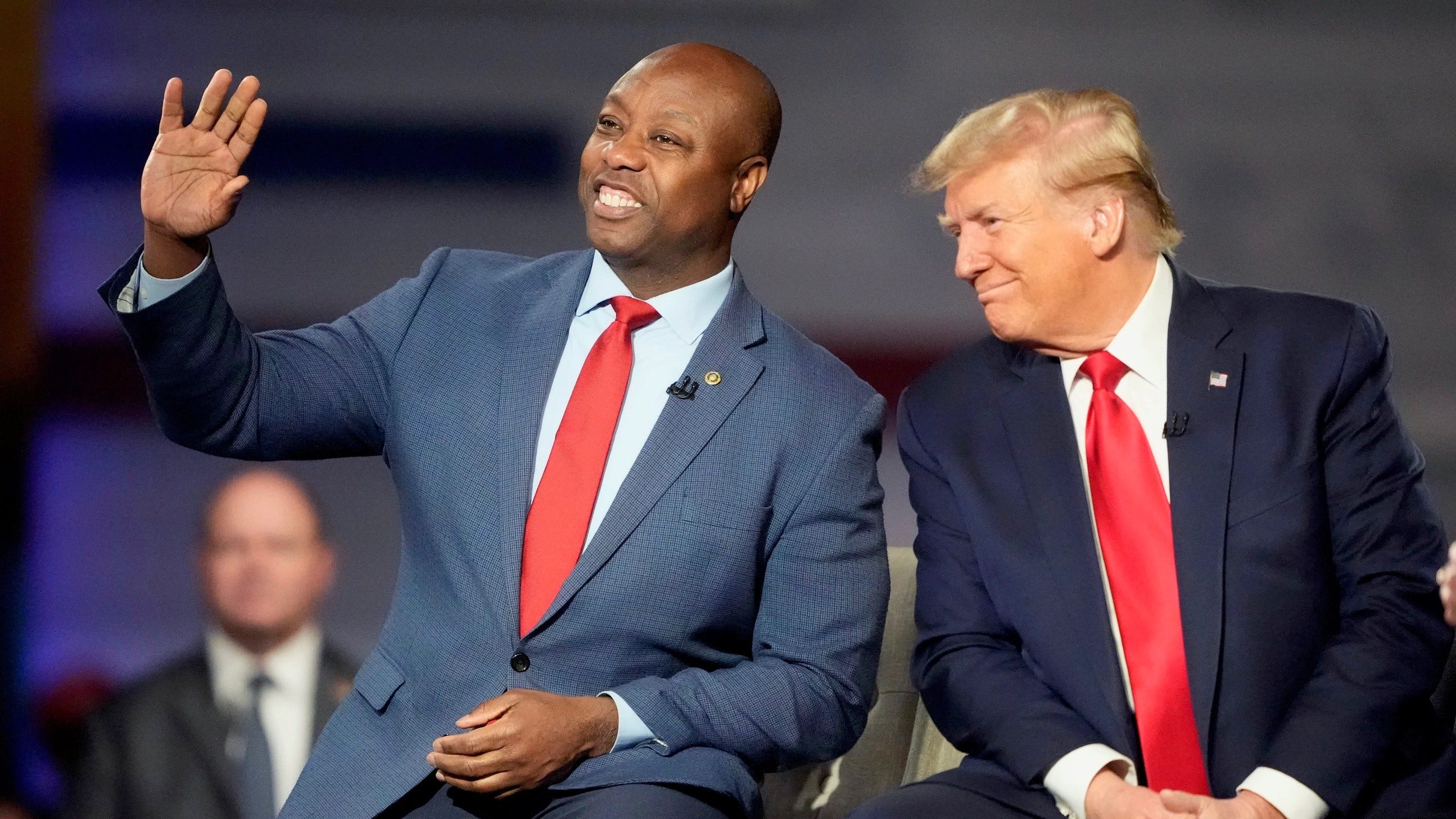Finance
Senate passes bill on high school financial literacy education ― but with some confusion
By a 35-1 vote, the state Senate on Tuesday enthusiastically passed a years-in-the-making bill requiring financial literacy instruction in high school despite some confusion about what the legislation actually does.
The bill mandates that public school instruction shall include “personal financial management and financial literacy.” And starting with the class of 2027 ― incoming freshmen this August― “no local or regional board of education shall permit any student to graduate from high school or grant a diploma to any student who has not satisfactorily completed a minimum of twenty-five credits,” including at least “one-half credit in personal financial management and financial literacy.”
An Office of Legislative Research analysis explained that an amendment approved on the Senate floor allows the half-credit to count toward the nine-credit humanities graduation requirement or as an elective credit, meaning the bill doesn’t make students take more credits to graduate.
The amendment also lets boards of education make a “one-credit mastery-based diploma assessment” ― such as a capstone ― optional rather than mandatory.
But Education Committee Co-Chair Sen. Douglas McCrory, D-Hartford, said in the session Tuesday about financial literacy that, “This course will be offered in our high schools for all our students. It’s not a mandate that they have to take it, but if they do take it, it fills the requirement of an elective or a humanities course.”
This was in response to a question from Sen. Rob Sampson, R-Wolcott, who then tried a different tack and asked, “Is it possible for a student to graduate from a local or regional board of education and graduate from high school without taking this one-half credit in personal financial management and financial literacy?” McCrory responded, “Yes.”
Michelle Rappaport, press aide for McCrory, said in an email Thursday that McCrory misspoke but did correct himself later while on the floor, and the bill does make financial literacy “a required mandate to take in order to graduate.”
McCrory posted a graphic to his official Facebook page Tuesday evening that described Senate Bill 1165 as “Requiring All High Schoolers to Take a Financial Literacy Course.”
He wrote, “Today I lead the Senate passage of a bill that will add personal financial management and financial literacy to the high school graduation requirements. I am thrilled all students in Connecticut will learn financial literacy regardless of which school district they live in. This levels the playing field for all students no matter their background.”
Asked for clarification Thursday, Sen. Martha Marx, D-New London, described it as a mandate, and Sen. Heather Somers, R-Groton, said in a text “it’s not a separate credit requirement and can be counted as an elective, but it will have to be taken I believe.” Sen. Norm Needleman, D-Essex, said he believes it’s a required course but was not 100% sure.
This was not the interpretation of Sen. John Kissel, R-Enfield, during the session Tuesday. While he ultimately voted in favor of the bill, Kissel said he was “sad” and “disappointed,” having hoped that the answer to Sampson’s question would be no.
“I don’t think this should be an option, and the ones that are going to opt out are probably the folks, the young people, that would need it the most,” Kissel said. He added, “I think that we need to force this down our kids’ throats sooner rather than later.”
Sen. Tony Hwang, R-Fairfield, also voted for the bill but first said, “I know there was some flexibility in this amendment to make it an elective. I would prefer that it be a required course.”
Sampson, the lone vote against the bill, then said the original bill was clear financial literacy was required for graduation, but McCrory indicated it was no longer required in the amendment.
Sampson, though, said he was hearing from his staff and others it’s still a mandate.
He also took issue with the bill leaving the course content up to the State Board of Education and not local school officials. Nobody else spoke before legislators voted.
Before all this, McCrory said he’s been working on this legislation for the past five years. He said certified teachers currently working in the school system can teach this course, but that legislators are also working on a bill that would allow people from the business world to teach the course.
Sen. Eric Berthel, R-Watertown, recalled that a year or two ago, his teenage son received a check from his aunt and asked what it was. He wants Connecticut to join the 17 other states requiring financial literacy education for graduation.
Sen. Cici Maher, D-Wilton, commented that because first-generation students “are often the teachers of their parents,” this bill will help parents as well.
Some local financial professionals who submitted written testimony in March supporting the bill on Thursday shared their reactions to the bill’s passage.
Charter Oak Federal Credit Union President Brian Orenstein said in an email statement he was excited for the bill’s passage. He added, “Having an understanding of basic financial principles is crucial for a sound financial future, and high school is the best place to start.”
Miria Gray, community education officer at Chelsea Groton Bank, said having students opt in is great but making financial literacy education mandatory is better.
“I think it’s fabulous that so many of the legislators are on board and understand how important it is for students to be able to have personal finance, manage their money after graduation, and to give them the tools they need to be successful in whatever career they choose,” she said.

Finance
Montana GOP, Busse file campaign finance complaints • Daily Montanan

The Montana GOP said the Democratic candidate for governor is illegally spending money on his wife’s communications company — but Democrat Ryan Busse, challenging the Republican incumbent, alleges Gov. Greg Gianforte improperly funneled $1 million to his campaign manager’s companies.
Both candidates deny the allegations in the respective complaints filed this month with the Commissioner of Political Practices.
Busse claims Gianforte paid campaign manager Jake Eaton and other staff affiliated with the campaign more than $1 million through Eaton’s companies. The payments are disclosed in financial reports, but the Busse campaign says they violate the law against “secret pass-through payments.”
Gianforte campaign spokesperson Anna Marian Block said in a statement Friday the campaign is in full compliance with the law.
“This complaint is nothing more than a desperate attempt to distract voters from the fact that Ryan Busse is trailing in the polls by 21%,” Block said.
Meanwhile, the Montana Republican Party alleges the Busse campaign allocated several thousand dollars to his wife’s communications company in violation of a law prohibiting surplus funds going to candidates for “personal benefit,” which includes family members.
In a response filed Friday, Busse’s campaign called the complaint “utterly meritless” and said contrary to the allegations, the communications work is being done by an experienced professional and legally must be compensated.
Busse: Gianforte isn’t disclosing payments to staff for campaign work
Eaton owns consulting firm The Political Company as well as political sign printing shop and marketing firm Ultra Graphics, both in Billings. The Busse campaign’s complaint, filed Friday, lists more than 25 payments from Gianforte’s campaigns to both companies between March and June of this year. The campaign says Gianforte should have made those payments to Eaton personally, instead of through his companies, for his consulting work.
Eaton noted in his email Friday political parties can submit expenditures for campaigns and noted the Montana Republican State Central Committee report is where the expenses for staff are listed, including his own. The committee’s report for the first quarter of the year notes The Political Company was paid three installments of $12,500, as well as salaries for staff listed in the complaint.
The complaint, authored by Busse staffer Emily Harris, said the Gianforte campaign has previously this election cycle tried to sidestep accountability for including false information about immigration in an ad. After taking the ad down, the campaign told Montana’s ABC/Fox affiliate the ad was done by an “outside contractor”and the campaign decided to remove it. Busse’s camp is claiming the ad was created by Eaton’s company, basing that off the time of the ad and when it was published.
Busse’s complaint also claims it is implausible Gianforte raised $1.2 million from when he officially became a candidate in January, but doesn’t point to concrete evidence Gianforte started raising money prior to becoming a candidate other than campaign contribution amounts being suspicious. Busse believes because the donations were all the same amount and at the maximum amount that could be donated by one person at a time, $2,240, it raises concern as it doesn’t match donation amounts from in person events which were around $100.
Harris wrote Gianforte started campaign activities earlier than is legally allowed as an internal poll came out days after he officially became a candidate, but also made the claim on “information and belief.”
The complaint also listed a number of staffers that claim through social media as well as in news reports to be affiliated with the campaign, but are not included in the expenditures for the campaign.
Harris also listed more than 20 expenditures from Gianforte’s campaign saying the descriptions were too vague and did not comply with the same statute referenced in the complaint against Busse for signs and media placement.
The Busse campaign also said money “passed through Eaton’s companies goes to other Republican-aligned vendors—payments Gianforte conceals from his reporting.” The complaint did not list which vendors, though.
GOP: Busse giving campaign funds to wife for communications work
The complaint from the state GOP, signed June 14, says Busse’s campaign paid Aspen Communications, owned by Sarah Swan Busse, a total of just more than $12,000 for communications and fundraising consulting, as well as car mileage. Sara Swan Busse is Ryan Busse’s wife.
The complaint also said candidate Busse receives a salary from Aspen Communications, which the campaign refutes as not affiliated with the election.
But because the salary would directly benefit Busse and his wife, the GOP alleges Busse is in violation of state law that prohibits surplus campaign funds from directly benefiting candidates or their family members.
The Busse campaign, in a response authored by campaign manager Aaron Murphy, said Sara Busse is an “independent experienced professional” and her work legally must be compensated fairly.
It listed her experience in the field working on western district democratic candidate Monica Tranel’s Congressional campaign during the 2022 election cycle.
The Busse camp also said the statute cited by the GOP regarding personal benefit from campaign funds isn’t relevant as it concerns how funds are dealt with after the campaign, not during. Murphy wrote the GOP likely meant to cite an administrative rule saying candidates cannot use campaign funds for personal use, but he said the campaign didn’t break that rule either.
“All expenditures and reimbursements to Sara Busse and Aspen Communications are directly connected to her fundraising and communications work for the campaign—they support the campaign and would not exist without it,” the response read.
“The campaign’s contract with Aspen Communications is not to compensate Ryan Busse. Ryan Busse receives no compensation from the campaign (excluding reimbursements for mileage, etc.),” the response read. “Ryan Busse’s occasional work for Aspen Communications, as listed on his personal disclosure, is entirely separate and distinct from the campaign.”
Murphy also said if hiring spouses was at issue, it would call into question the ethics of the state paying attorney Emily Jones, wife of Gianforte’s campaign manager Jake Eaton, for her work as an attorney with the state.
The GOP complaint also said Busse’s campaign was not thorough in its description of the services paid for with campaign funds, as is required in statute.
This included a $250,000 ad buy from media strategy company Left Hook with the description “statewide broadcast tv ad buy” and a nearly $7,800 purchase from progressive campaign sign producer Blue Deal with the description “signs.”
Montana Commissioner of Political Practices Chris Gallus said the timeline for determining whether his office will move forward with a formal investigation in the complaint against Busse is not known at this time. His office will send a letter Monday requesting Gianforte’s response to the complaint by Busse.
Editor’s Note: the headline of this story was amended to reflect the Montana GOP filing the campaign finance complaint against Ryan Busse.
Finance
California high schools will require personal finance course for graduation under new bill

Beginning with the graduating class of 2031, high school students in California will be required to complete one semester of a personal finance course before receiving their diplomas.
On Thursday, Gov. Gavin Newsom signed legislation to require personal finance education for high school graduates after the state Senate and Assembly passed Assembly Bill 2927. This makes California the 26th state to require finance-related instruction for graduating high school seniors.
The standalone course, which would teach students to expand their financial literacy through topics like minimizing bank fees and managing credit scores, would be offered early as the 2027-28 school year.
“Our young people need and deserve a clear understanding of personal finance so that they can make educated financial choices and build stable, successful futures for themselves and their future families,” State Superintendent Tony Thurmond said in a press release. “By adding personal finance to our high school graduation requirements, we acknowledge that managing household finances and building financial stability are essential life skills.”
Superintendent Thurmond, who sponsored the bill, said that “every child should have the opportunity to build these essential skills before navigating adult financial choices.” The content considered for the personal finance curriculum would also include budgeting principles, investment options and consumer protection awareness.
High schoolers may be able to substitute the new personal finance course for their semester-long economics course, which is currently required for graduation throughout the state. School districts and charter schools may also provide students the option to complete a yearlong course to further expand their financial literacy.
In order to enhance the creation of this curriculum, State Superintendent Thurmond announced efforts in March to build a personal finance task force that would support the implementation of these required courses for K-12 students throughout California.
Superintendent Thurmond and the California Department of Education plan to work with education experts from the Instructional Quality Commission to develop a curriculum guide and resources, expected to be adopted in 2026.
Finance
There’s one critical part of employee wellbeing that bosses are forgetting

The cost of living crisis is weighing on employees. And as companies roll out more unique benefit offerings designed to support staffers, they should spend some time thinking about the financial benefits that workers actually want.
Two out of three U.S. employees ranked financial well-being as the top area within well-being overall in which they want support from their bosses over the next three years, according to a new report from Willis Towers Watson (WTW), an insurance services company. That beat out all other well-being subcategories, including a supportive company culture, mental, emotional, and physical health benefits, and workplace connections.
About 88% of workers are worried about covering their living costs, with 73% concerned about paying for food, 72% distressed about healthcare, 69% fretting over housing, and 66% troubled over transportation, according to the report. Around one in five American employees expect their financial situation to get worse over the next year.
In the past, retirement benefits were the main financial perk that employers would offer to their workers, Mark Smrecek, financial well-being market leader at WTW, tells Fortune. But as costs rise and workplace expectations shift, there’s been an increased emphasis on other meaningful employee benefits.
“As we look at broader lifestyle needs and concerns, the inventory on the employer side is far less equipped to serve its employee base,” he says.
Employers also seem unclear about how much workers actually prize financial well-being benefits. While 66% of U.S. workers want their employer to help them with their financial wellness over the next three years, only 23% of bosses prioritized financial wellness as an aspect of their well-being program.
When it comes to the kind of support they would like to see from employers, around 47% of U.S. workers say they want help growing their savings and wealth, according to the report. That’s followed by 35% who want help getting the most out of the benefits they already have, 33% who would like access to money in an emergency, and 21% want help managing debt. Around 21% want financial insurance, and 11% want help managing student loans.
Smrecek says that growing savings and wealth, as well as getting the most out of benefits, are two relatively traditional requests that employers are comfortable with. But others are more outside their wheelhouse.
“Providing access to money in emergencies and helping manage employee debt are two that are far more emerging from an employee demand point of view,” he says.
Smrecek adds that in addition to fulfilling workers’ specific financial benefit demands, employers need to do three things to best support staffers. He recommends bosses provide solutions that are relevant and accessible to their workforce, like financial literacy coaching and direct access to liquidity. Employers should also supplement those solutions with other less monetary-focused programs like affordable and effective healthcare plans. And companies should be proactive about connecting employees with these benefits.
“As employers look to really address the core need of the employee, how that relates to their business, and how they create value from their benefits, those aspects will drive a lot of the results that they’re looking for,” he says.
Emma Burleigh
emma.burleigh@fortune.com
Around the Table
A round-up of the most important HR headlines.
Workplace vacancies hit a record high of 19.8% last quarter, and a Moody’s report shows that the percentage of empty U.S. offices could peak at 24% in 2026. Quartz
Patagonia told 90 of its remote customer service staffers that they have three days to decide if they want to relocate to one of the company’s seven “hubs” or leave their role. Business Insider
Despite some progress in California, most U.S. businesses are opposed to passing “right to disconnect” legislation, reasoning it wouldn’t fit well with remote workers and those logging in from abroad. CNBC
Watercooler
Everything you need to know from Fortune.
Secret weapons. As more companies are trying to get workers back into the office, they’re employing sociologists, psychologists, and anthropologists to understand how staffers tick. —Ryan Hogg
Lavish living crisis. U.S. workers earning $150,000 per year are more worried about covering their bills than employees making $40,000 up to six figures, according to a report. —Eleanor Pringle
Paychecks for prosperity. China’s biggest banks have requested senior staffers to waive deferred bonuses, or even partially return their wages, to abide by the country’s new $400,000 pre-tax limit. —Bloomberg
-

 News1 week ago
News1 week agoTracking a Single Day at the National Domestic Violence Hotline
-

 Fitness1 week ago
Fitness1 week agoWhat's the Least Amount of Exercise I Can Get Away With?
-

 News1 week ago
News1 week agoSupreme Court upholds law barring domestic abusers from owning guns in major Second Amendment ruling | CNN Politics
-

 Politics1 week ago
Politics1 week agoTrump classified docs judge to weigh alleged 'unlawful' appointment of Special Counsel Jack Smith
-

 Politics1 week ago
Politics1 week agoSupreme Court upholds federal gun ban for those under domestic violence restraining orders
-

 World5 days ago
World5 days agoIsrael accepts bilateral meeting with EU, but with conditions
-

 Politics1 week ago
Politics1 week agoTrump VP hopeful proves he can tap into billionaire GOP donors
-

 World1 week ago
World1 week agoInfluencers and politicians – meet the most connected lawmakers













